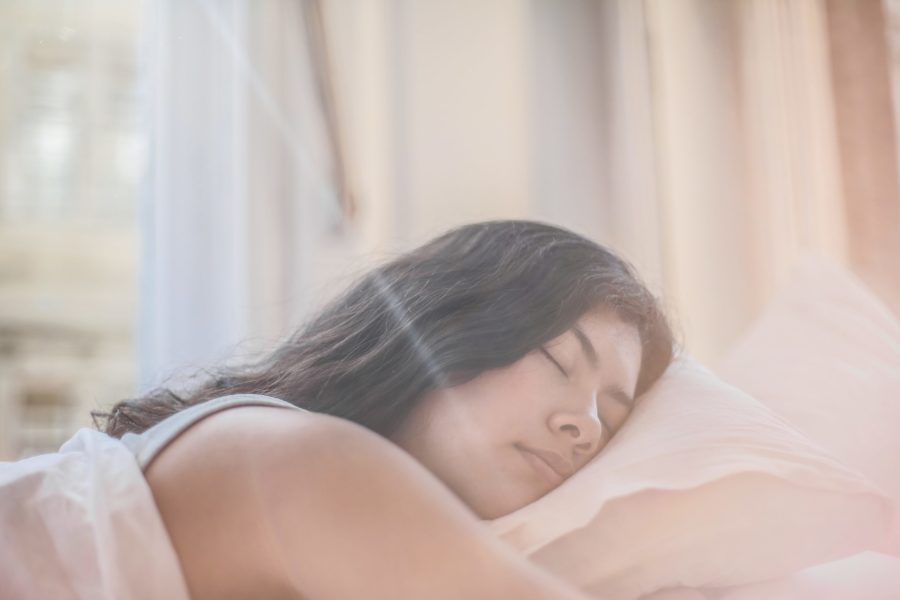Catch Some Z’s: How COVID Affects Your Sleep And What To Do About It
Be honest – do you get enough shut-eye? The CDC recommends a minimum of seven hours of sleep per night for adults over 18 years old. However, COVID may be affecting how we catch our Z’s.
Getting a good night’s sleep is important because poor sleep quality is associated with poor mental health, cardiovascular disease and chronic kidney disease, according to the Journal of Clinical Sleep Medicine.
Although our lives have been slowly returning to normal since the start of the pandemic in March 2020, Omicron cases are continuing to rise. The National Heart, Lung, and Blood Institute found that the pandemic can negatively impact our sleep because of disruptions in all aspects of life. Changes in routine, financial insecurities and illnesses – either personal or that of a loved one – can lead to anxiety, which affects sleep.
The National Heart, Lung, and Blood Institute also reported that some individuals have experienced sleep problems such as insomnia post-COVID. Insomnia makes it hard to fall asleep and stay asleep, according to Mayo Clinic. A lack of sleep can weaken the immune system, making people more susceptible to COVID and other illnesses.
While research on the relationship between COVID and sleep is limited, it is important to get quality sleep because COVID may be detrimental to your slumber.
How To Improve Your Quality Of Sleep
The number one thing to do if you’re trying to feel more rested and have more energy throughout your day is to have a regular sleep schedule, according to Mayo Clinic. Pick a time to go to bed and a time to wake up, and try your best to stick to it – even on weekends.
I’m sure most people have already heard that limiting technology before bed can help you fall asleep. Light-emitting screens can make it more difficult to rest at night, according to Mayo Clinic. Instead of scrolling on your phone until you close your eyes for the night, give your eyes a break, create a relaxed environment and read a book instead.
COVID related stress – or just stress in general – may be causing you to struggle with your sleep. It can be hard to settle your worries before bedtime, so Mayo Clinic recommends jotting down the things that are weighing on your mind, so you can wait to think about them until the next morning.
The last tip for improving your quality of sleep is to avoid taking naps. Sometimes I find myself super tired during the middle of my day, and all I want to do is take a nap. However, I fight the urge because I know napping will throw off my sleep schedule. When I feel like napping, I do a light workout or go for a walk. I feel more energized after doing so, and it helps me preserve my sleep schedule.
While sleeping is the last thing we do at the end of our day, it is one of the most important things we do to take care of ourselves. Don’t neglect yourself, especially with the stress of COVID. Try to catch some quality Z’s every night.
RELATED ARTICLES Roller Skating: Add Some Style and Spice to Your Cardio
Ho’oponopono: An Ancient Hawaiian Path to Forgiveness
Exploring the Benefits of Eggplant
Gout: The Throbbing Pain You Want to Live Without

